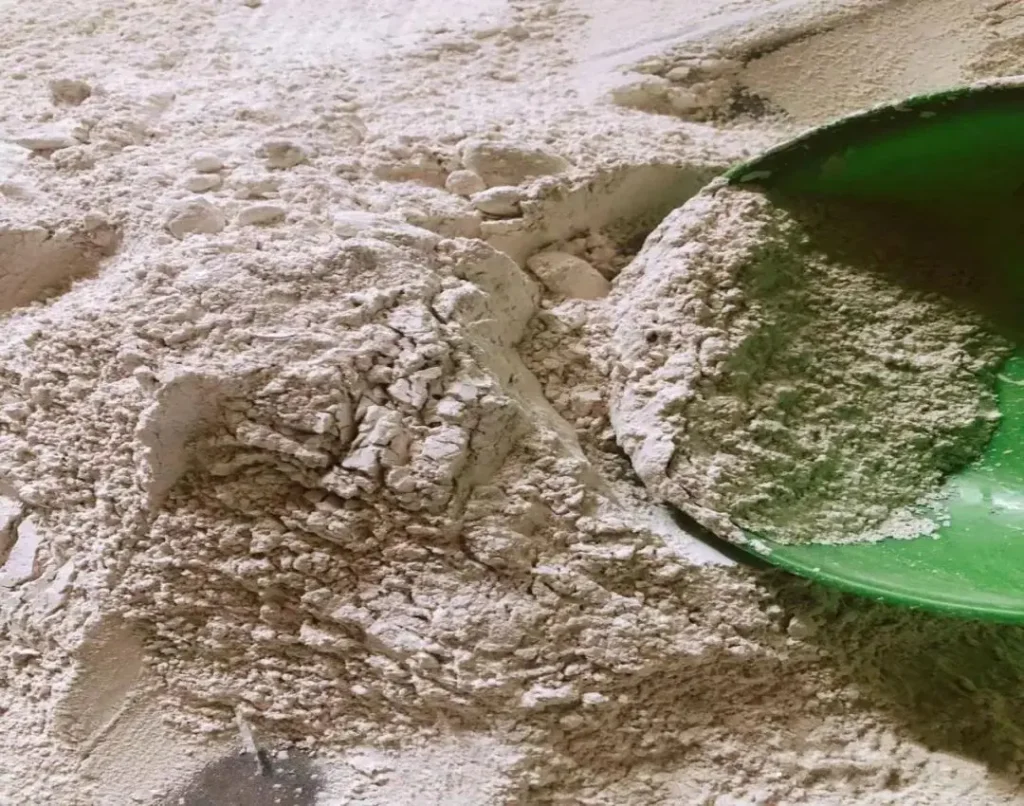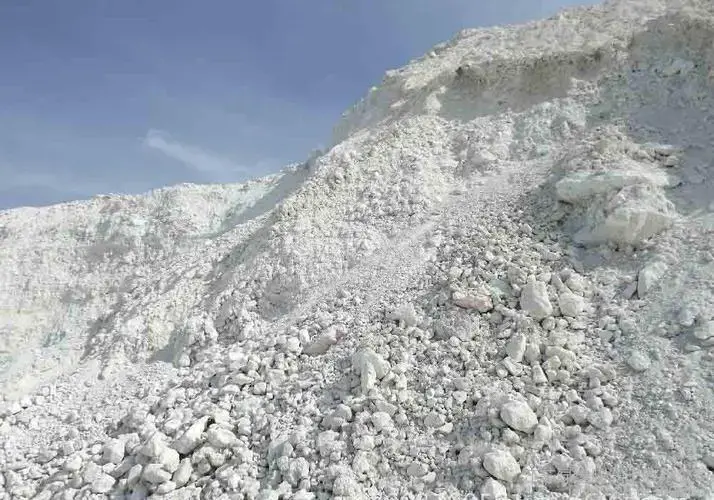As an important industrial mineral, high-quality bentonite is widely used in many fields, such as drilling mud, casting materials, metallurgical pellets, chemical coatings and feed additives. Its unique physical and chemical properties make it an indispensable industrial additive. So what are the characteristics of them? How to judge the quality of bentonite?

Characteristics of high-quality bentonite
1. Few impurities and high purity
High-quality bentonite ore usually is pure white, gray or light yellow. When dissolved in water and dried naturally, its solid form still maintains its original color, and the fracture surface has few impurities, high purity, and high-quality luster. If you touch it with your hands, you will feel smooth. It presents a jelly-like state.
2. Rapid expansion in water
Bentonite absorbs water quickly and can easily dissolve and expand in water. The expansion multiple can usually reach 10-25 times its own volume, forming a colloidal solution. After a long period of drying and dehydration, bentonite can be in a loose soil state again.
3. Strong cation exchange and adsorption
Bentonite has strong cation exchange and adsorption capacity, and can absorb various liquids, gases and colors. This property makes bentonite smoother in oil and fat mixtures. It’s also suitable for treating various industrial waste waters.
4. Good suspension and not easy to precipitate
The purified bentonite powder has good dispersibility in water and is not easy to settle. This suspension makes bentonite have better stability and fluidity in applications such as drilling mud and casting materials.

How to judge the quality of bentonite
1. Visual identification
First, you can make a preliminary surface judgment by observing the color, gloss and texture of bentonite with your eyes. As mentioned above, high-quality and high-purity bentonite is usually pure white, gray or light yellow, with high-quality gloss and jelly-like state. If the bentonite is green, blue or has other impurities, it may be poor quality bentonite.
2. Field investigation
If conditions permit, you can go to the bentonite manufacturer for a field investigation to find out the quality and processing of its raw materials (bentonite ore). High-quality bentonite manufacturers usually have strict raw material screening and processing procedures to ensure product quality.
3. Quality inspection
Before buying bentonite, you can ask the manufacturer for samples and conducting relevant quality inspections. Inspection items can include color, purity, colloid, blue absorption, expansion multiple, viscosity value and other conventional parameters. These parameters can fully reflect the performance of bentonite.
4. Understand the type of bentonite
Different types of bentonite have different application areas and performance characteristics. For example, calcium-based bentonite is cheap and easy to process, suitable for feed additives, etc. While sodium-based bentonite has an alkaline pH value and is mostly used in drilling mud, casting materials and other industries. Understanding the type of bentonite will help you choose a product that suits your needs.